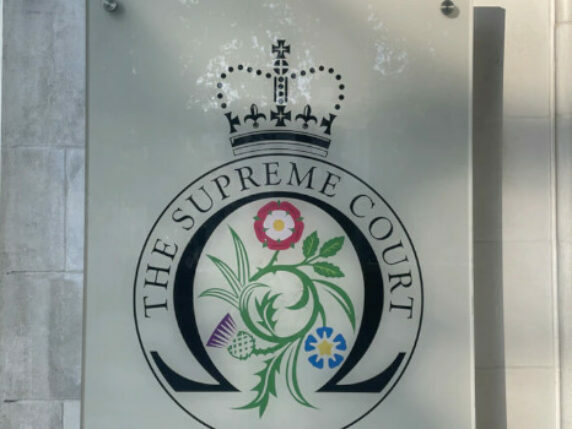A much-awaited and long-delayed judgment in the Supreme Court was handed down on Friday 18 June, backing the claim of Manchester Building Society (MBS) against its ex-auditor Grant Thornton, a firm of accountants. Grant Thornton has been ordered to pay £13.4m in damages to the building society in a ruling that redefines the scope of a professional adviser's duty.
From 2006 to 2012, Grant Thornton negligently advised MBS that its accounts could be prepared using a method known as ‘hedge accounting’. The society trusted this advice and subsequently entered various fixed-rate mortgages hedged against long-term interest rate swaps.
Following the financial crash, Grant Thornton became aware that it had incorrectly advised MBS that hedge accounting could be used, when in reality it could not. This meant that MBS had to restate its accounts, showing substantially reduced assets and insufficient regulatory capital. To remedy this, MBS closed out the swaps early, costing them over £32 million.
The trial judge and the Court of Appeal held that the society could not recover in damages the cost of closing out the swaps from Grant Thornton, a decision based on their understanding of the scope of duty principle illustrated in South Australia Asset Management Corpn v York Montague Ltd [1997] AC 191 (SAAMCO). This was due to the previously assumed rigidity of the distinction between ‘advice’ and ‘information’ in SAAMCO, resulting in both courts holding that the loss sustained by MBS was not within the scope of Grant Thornton’s duty of care.
In upholding MBS’s appeal, the Supreme Court emphasised that the distinction drawn between ‘advice’ and ‘information’ in SAAMCO 'should not be treated as a rigid rule and the focus should rather be on identifying the purpose to be served by the duty of care assumed by the defendant'. The Court also suggested that using a counterfactual test (whether it is asked had the advice/information given by the defendant been correct, the action taken by the claimant would have resulted in the same loss) should be regarded as a tool to cross-check the result.
This decision is likely to remove some of the difficulties that have arisen in categorising ‘advice’ and ‘information’ cases. It also illustrates the importance of professional advisers, ensuring there is clear agreement from the outset stating the purpose of their work or advice, as well as the impact it could have should this work or advice be incorrect.
Our dispute resolution solicitor Barik Haider offered this analysis: 'This case appears to tweak the basis on which the scope of a professional adviser's duty is determined. Previously, there were information cases (ie the adviser’s duty was limited to providing information that was just one of a number of factors on which a client may rely, and so the extent of their liability also restricted) and advice cases (where the professional adviser was advising on the transaction as a whole, and so potentially liable for all losses). But now these categories have now become blurred, and it seems a single test is now to be applied using various factors as to the extent of a professional adviser’s duty. The judgment in this case suggest that the court is more willing to widen the potential liability of the professional advisor based on the wider purpose of any advice provided.'
For further information, read our article about professional negligence. Or if you need advice now, contact one of our specialist negligence solicitors for a an initial no-obligation consultation.







